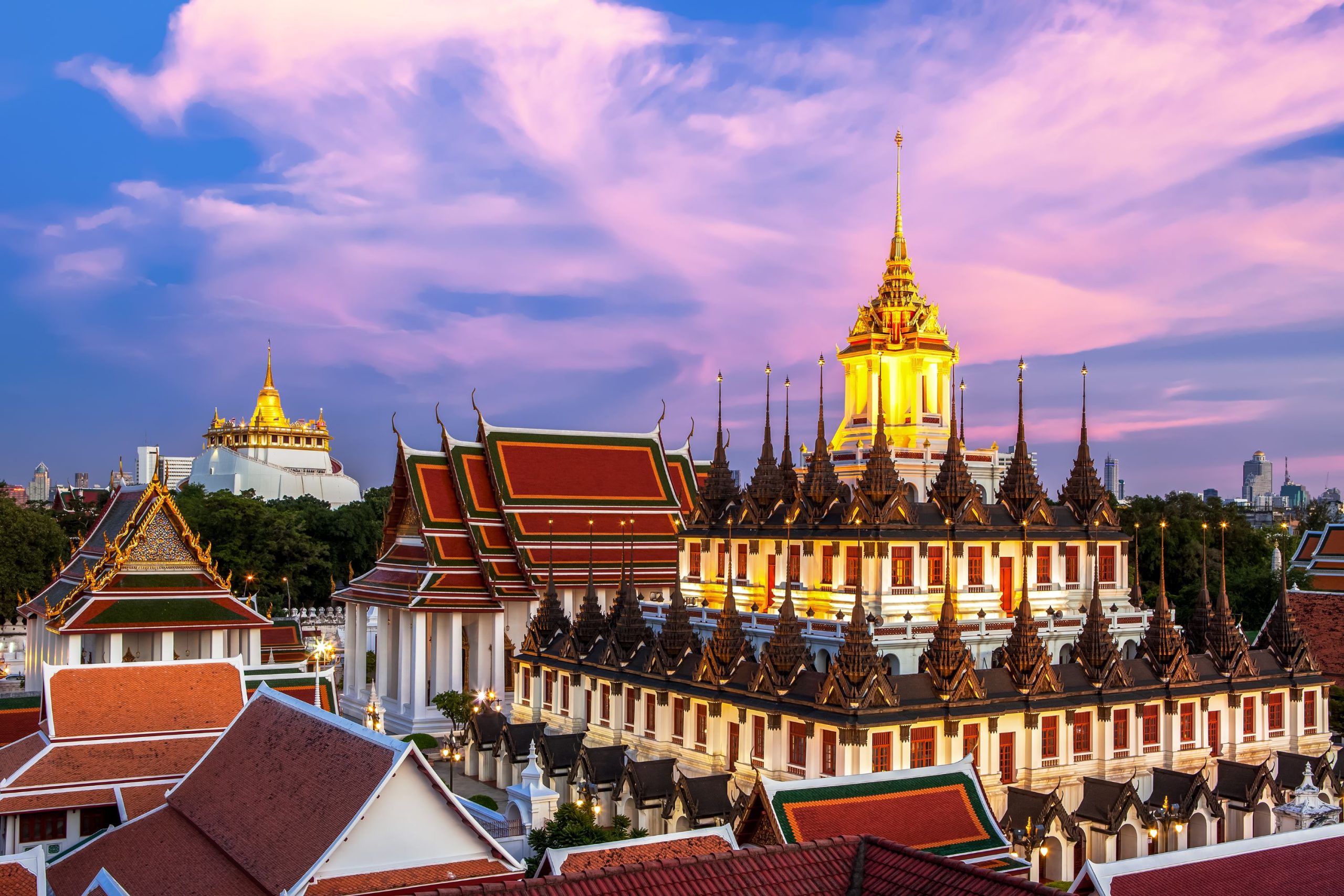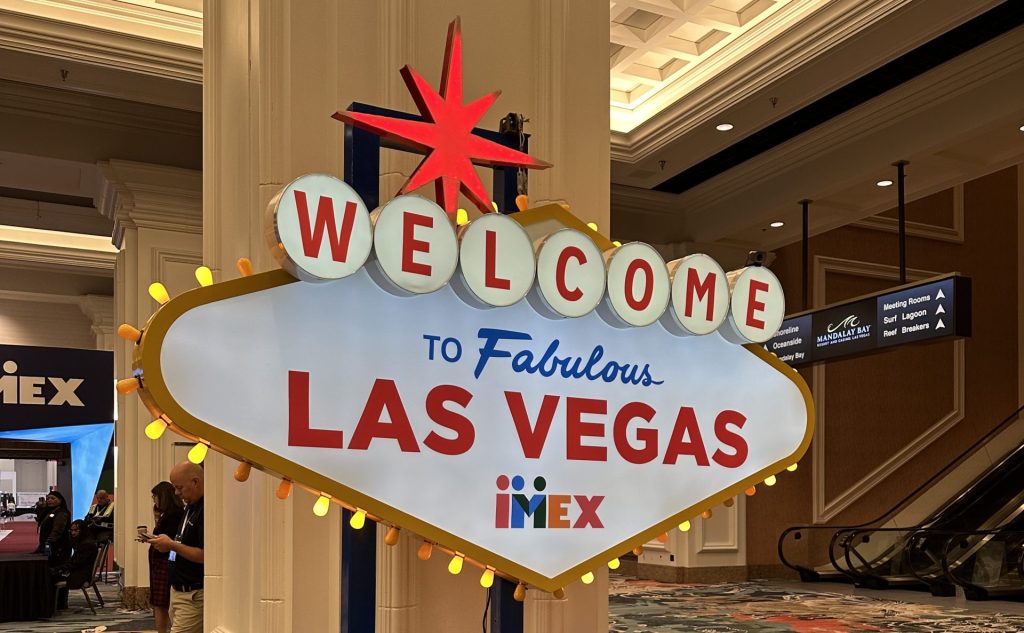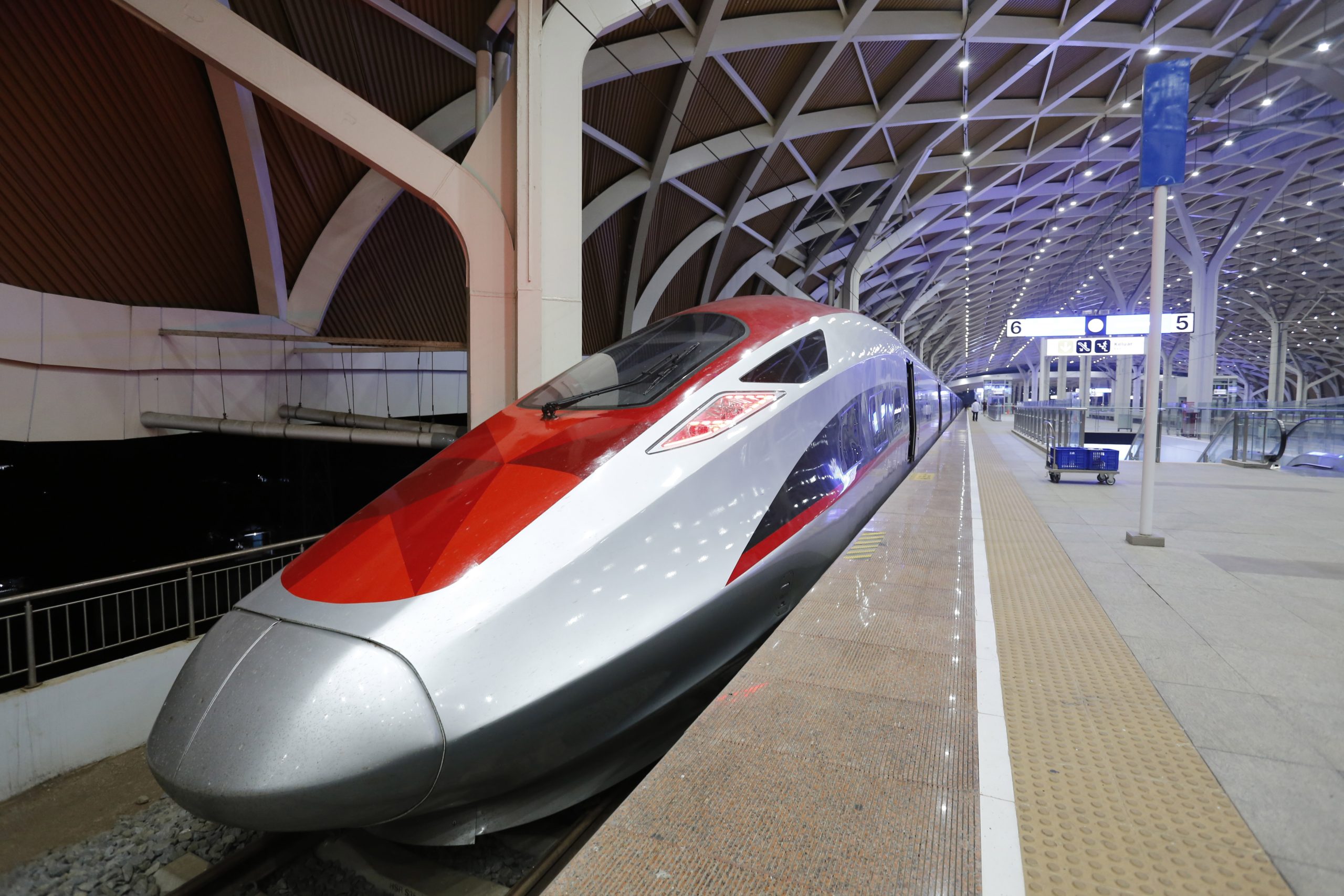Whatever whets your appetite, whether it be the dizzying hi-tech megalopolis of Tokyo, the Zen-inspired gardens and magnificent temple architecture of Kyoto, the sublime and sophisticated cuisine, the neon-bathed nightlife, the fashion meccas of Ginza and Harajuku, or simply the huge generosity and hospitality of the people, Japan has something to suit every taste.
Endless variety, ancient tradition, modern complexity, and a seemingly universal appeal to the imagination of “Things Japanese”, mean the country is a fantastic destination for meetings and incentive travel clients.
As Singapore-based financial consultant Cindy Yeoh toured Kyoto’s Tenryuji Temple, (part of a rewards package put together by her employer and the Tokyo-based group, Fireworks) she told Mix: “When it was announced that we were coming to Japan the whole group gasped with amazement. It’s a dream destination. We’d seen Memoirs of a Geisha and The Last Samurai and now we are here, where it all happened.”
While Japan has long exerted a fascination abroad, not least with its tales of warriors and tragic beauties, there are many misinterpretations and misconceptions about the country.
The novelist James Kirkup beautifully expressed it in his Heaven, Hell and Hara-Kiri: “Once upon a time, everyone thought that Japan consisted only of Mount Fuji, a peak inhabited entirely by geisha.”
Today, you’ll see more Calvin Klein than kimono in most Japanese cities; Zen priests are surprisingly knowledgeable about hostess bars and karaoke and believe it or not, Japan is actually affordable.
This may come as a surprise to those who still imagine Japan as the astronomically expensive, luxury-sated, maelstrom of decadence that characterised the country during the years of out-of-control excess of the Bubble Economy.
“The explosion of the money culture,”as journalist Robert Whiting described it, is the main reason why many business planners and event organisers from Sydney to Singapore, and all points west, still perceive Japan as an unaffordable and implausible destination.

Changed Times
Then Tokyo was “the world’s most expensive city”. It was official. That, however, is simply no longer the case. Inflation is at zero percent. The yen remains weak and looks set to remain so for the foreseeable future. The buzz word is no longer “babburu” (bubble growth), but ‘“fukeiki’”(‘recession’).
Toshiro Ishiyama, president of Meeting Professionals International and event convention manager for Tokyo’s premier Japanese-style venue, Happoen, has first-hand experience of changing attitudes. He helped host the French Soccer Federation during the 2002 Japan-Korea World Cup and has worked with incentive groups for multinationals such as Toyota.
“Everyone agrees now that Japan is a competitive destination,” he says, “and executives are constantly telling me that they find it more cost- and performance-effective to choose Tokyo ahead of Seoul.”
If Tokyo has finally shed the image of being over-expensive, it has also, according to Lloyd Nakano, general manager of one of Japan’s premier luxury hotels, the Hotel Seiyo Ginza, finally entered global consciousness as a premier world-class destination of style and sophistication.
He points to the arrival of some of the world’s top chefs and more international branded hotels as a sign of just how much Japan has changed.
“With the arrival of such luminaries as Ducasse (Beige and Benoit), Robuchon (Atelier and Chateau), Pachon, Ganier, Borcuse, Nobu, Gordon Ramsay and more,” he says, “along with hotel brands such as Ritz-Carlton, Mandarin, Conrad, Peninsula and Rosewood, the city can host major multi-national meetings at the highest and most exclusive levels.
“This is along with incentives involving unbeatable experiences so destination management companies and professional conference organisers can finally feel comfortable and confident that their needs will be understood and properly looked after.”
Indeed, food might be the perfect metaphor for the reappraisal that Japan is receiving as a desirable destination. With Japanese cuisine fast becoming its own global phenomenon, it is significant that this autumn will see the first Michelin Guide Tokyo edition.
Not exactly known for their fawning hyperbole, the nickname that the French culinary oligarchs are giving the city is nothing short of, well, magnifique.
Tokyo is, they say, the “dining capital of the world”.
Indeed, the times are changing.
Practicalities
The key to planning a successful corporate trip to Japan is to adopt an open-minded approach to how things may be “done rather differently over there”, and requires early planning.
For reasons that are partly cultural, partly structural, even the most experienced of Japanese corporate and management organisations seem to work at a pace that is anathema to businesses run on efficiency-driven Western models.
What is more, Japan’s expertise in the areas of destination management companies (DMCs) and professional conference organisers (PCOs) is still somewhat in its infancy, and thus it is not uncommon for events to be put together by the top-end hotels themselves, or by non-specialist travel agents.
The Tokyo Convention Visitors Bureau (TCVB), Japan National Travel Organisation’s specialist arm, the Japan Convention Bureau, and Japan Travel Bureau are excellent first-stop sources of information when planning your events, but a direct approach to the hotels, conference venues and travel agencies is also advised.
Many companies choose to entrust their event arrangements to Japan-based expatriate specialists, who are used to liaising between foreign corporate and Japanese travel industry groups, and are experts at smoothing out the cross-cultural bumps.
Tailored services
Patricia Elleven, event organiser for Tokyo-based Fireworks, whose corporate clients include American Express, HSBC, IBM and Citicorp, explains: “Many of our international corporate clients find it more convenient and reassuring to deal with groups like our own rather than the larger Japanese agencies as we can instinctively understand the kind of experience they are looking for and tailor our services accordingly.”
In addition to finding the right people and companies to plan your events and itinerary, flexibility about destination may also be a key to success.
While most inbound groups focus on Tokyo as the premier destination, you should certainly consider the ancient capital Kyoto and “second city”, Osaka, as viable alternatives or complimentary destinations.
Osaka’s proximity to the Kansai International Airport; its well-developed travel-related infrastructure with top-class hotels, conference facilities and easily navigable transport system; its commercial heritage; its famously friendly and engaging inhabitants; and consumer prices which are consistently lower than the nation’s capital, make it a very attractive option.
Don’t forget to brush up on the local dialect before you arrive, not least the ritual local greeting “Mo kare ma’ka?” (“You making any money?”) and its time-honoured answer in this city of dyed-in-the-wool merchants and wheeler-dealers, “Bochi-bochi da na” (“Can’t complain…”)
Kyoto boasts no less than 1,600 temples, 400 shrines and 17 UNESCO World Heritage sites. Its cultural richness, magnificent traditional architecture, superb local cuisine and locally-brewed world-beating Sake are a powerful combination.
However, this is where the opportunity to see historical Japan in a living context, make it a real must-see.
This is also where your group will have the best opportunity to stay in a traditional Japanese ryokan, such as Tawaraya or Sumiya or simply to stroll the fascinating backstreets of this 1,200-year-old former capital.
No matter what lengths events organisers go to in order to arrange superb experiences, time and time again visitors cite this as their favourite memory.
It is a magical city.
While Tokyo, Osaka and Kyoto remain at the top of every planner’s list, it mustn’t be forgotten that the country has 49 officially designated International Conference Cities, each with its own convention bureau (despite the title they are equally at home handling groups that number tens rather than thousands of participants).
These cities include Sapporo on the northern island of Hokkaido, with its excellent winter sports facilities, cool, temperate summer climate, unusual indigenous Ainu culture and entertainment district, Susukino. Yokohama, officially the second largest city with its famed Chinatown and seafront leisure districts, and Nagoya, chief host of the 2007 Aichi Expo. Finally, the buoyant and energetic Asia-conscious city of Fukuoka on the southern island of Kyushu, where, on my last visit, no-one seemed to have even heard that there is a recession going on.
The bars, restaurants and open-air noodle stalls of Nakasu and Hakata were teeming with happy customers, only too willing to invite in a passing traveller.
ICCs with a rural flavour include the splendid mountain city of Hida-Takayama with its thatched-roof houses and beautifully restored merchants warehouses; Matsumoto, with its magnificent local cuisine and Olympic-class winter sports facilities; and the quaint hot-spring town of Beppu in Kyushu.
All ICCs have specialist facilities for meetings and incentives travel, and all offer some form of visitor-friendly subsidies.
The Japan of today is fiercely trying to improve its international status as a must-see destination, and challenging itself to attract visitors in record numbers. Ever since (former Prime Minister) Junichi Koizumi vowed to increase foreign visitation to 10 million by the year 2010, a sea-change has occurred in Japanese attitudes.
Lloyd S Nakano of hotel Seiyo Ginza,
puts it succinctly. “Tourism and hospitality are finally becoming a political and economic ‘initiative’ and an item on the political agenda. We’re finally seeing more governmental and industry effort to make us a friendlier and more convenient, more desirable venue. Japan has woken up.”
Time for us to wake up too.
Is tokyo expensive?
Mix conducted a room-price survey of major international brand hotels in Tokyo with roughly equivalent same brand hotels elsewhere in Asia. Rates were requested for a standard single occupancy only. The results may be a surprise.
InterContinental Tokyo Bay: US$199
Grand InterContinental Seoul: US$256
InterContinental Hong Kong: US$149
Sheraton Grande Tokyo Bay: US$149
Seoul Sheraton Grande Walker-Hill: US$201
Le Meridien Pacific Tokyo: US$199
Le Meridien Hong Kong Cyberport: US$211
Le Meridien She Shan Shanghai: US$322
Note: Prices are for single occupancy rooms only. Event organisers should be able to negotiate better rates for group bookings based on size and other factors. All figures were researched anonymously, by telephone, through the hotels’ own booking service and refer to the same dates. Dollar rates are
quoted at the rate of US$1=JP¥120.317
Unusual Venues
Happoen
Happoen is the kind of Japan that we all suppose is long lost in the mists of time and imagination. Well, fortunately for us it isn’t and, even better, it’s for hire. This 400-year-old Japanese garden in Tokyo’s Shirokane district comes replete with bonsai trees, stone lanterns, and exquisite teahouses made of paper, wood and earth. Spectacularly beautiful, it is a favourite spot for Japanese corporate events and society weddings. It provides full banqueting services for up to 800 people.
Kyoto Sights and Nights
Canadian-born Peter Macintosh, founder and director of Kyoto Sights and Nights (KSN) provides visiting groups with the kind of unique opportunity that turns an excellent business trip into something even more remarkable. He arranges for you to meet geisha face to face.
As he explains: “At KSN we offer to provide the kind of unique encounters that Japanese themselves find it almost impossible to experience. Kyoto is Japan’s ancient capital and remains a very traditional city.
It still keeps to the system “ichigen san o kotowari” where first-time visitors to a traditional house of entertainment are refused, and may be admitted through prior introduction only. In other words, unless you know someone, you’ll never get in.
“For this reason we opened a private VIP bar Hanagumo (titled after Macintosh’s wife’s geisha name), which allows foreign and Japanese visitors a chance to experience real Kyoto nightlife, including geisha entertainment. Through my decade-and-a-half experience, and with my contacts in the heart of the Gion district’s geisha world, we allow even short-term visitors the chance to experience the true Kyoto nightlife,” Macintosh says.
Whether it be for the intimate meetings at Hanagumo, or for the lectures and walking tours that he provides for up to 300 corporate guests, Macintosh and his team of locally-assembled experts provide English translation.
Fast Facts
Japan National Tourist Organisation/Japan Convention Bureau
It publishes the excellent CD-Rom Japan Incentive Travel Manual through the Secretariat of Visit Japan Headquarters, detailing nine example of itineraries for smaller and larger groups, including team-building exercises and hands-on samurai battle experiences. Aimed primarily at the US market but still a valuable tool.
Tokyo Convention & Visitors’ Bureau
www.tcvb.or.jp/en/index_en.htm
Osaka Convention & Visitors’ Bureau
The Professsionals
We offer a short list of event partners “in their own words”.
JTB (Japan Travel Bureau)
Global Marketing & Travel, Inc
tel (+81) 3 5256 1581
e-mail: y_ohkuma857@jtb.jp
“We bring together all the best resources, latest technology and extensive experience gained from organising a wide range of conferences.”
Fireworks, Inc
Contact: Patricia Elleven
e-mail: patricia@fireworks.co.jp
“We have no preconceived ideas about how things should be done. We pride ourselves in being able to take a fresh perspective on every project.”
Kyoto Sights and Nights
“We will show you the beauty and hidden charms of the city, night or day, that are either off the beaten path or simply off-limits to others.”
Convention Linkage
“Having been in the profession for over twenty years, our past achievements and experiences have given us considerable knowledge in hosting conferences, and have made us a major player in the industry.”


